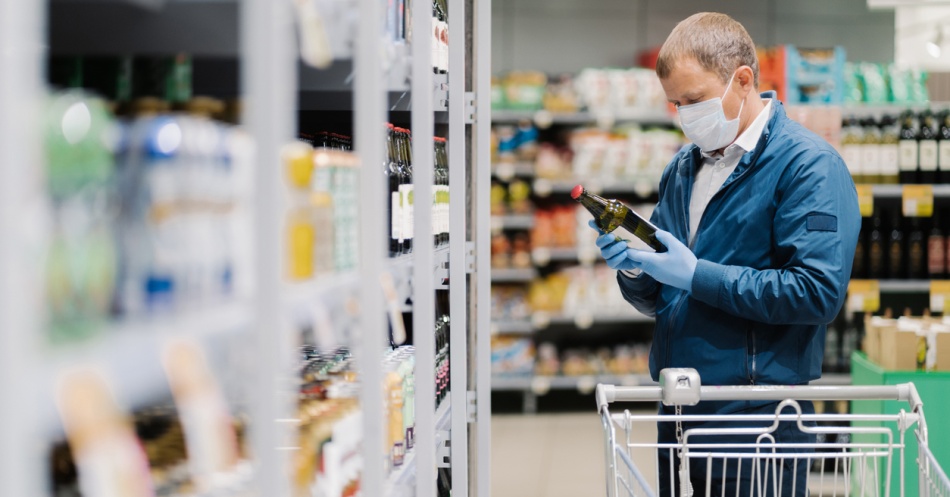Raising Brand Awareness During a Pandemic

As the world reels from the COVID-19 outbreak and the World Health Organization advises people to stay home and socially distant, some brands seem to have not gotten the memo. The prize for most tone-deaf ads during the pandemic goes to companies like KFC, who portrayed someone licking another person’s fingers. Unfortunately, they were far from the only ones who missed the mark while trying to stay relevant during a difficult time. Others simply gave up on brand awareness altogether to avoid risking being perceived as insensitive.
The correct approach lies between the two extremes. Brand awareness can come about in several ways while being sensitive to the pandemic’s effects. Your brand can gain elevated awareness in a positive, socially conscious way during the pandemic. You just have to know how to thread the needle.
How To Raise Awareness
Picking the right tone is critical in any message your company conveys during stressful situations. We’ve seen the impacts when companies miss the mark. To avoid becoming known for the wrong reasons, you should consider some basic guidelines about raising awareness during a pandemic:
- Commiserate with the viewer
- Be socially responsible
- Help your customers and employees
Commiserate With the Viewer
Rather than going forward with standard marketing techniques, cater your advertisements to commiserate with the viewer and their situation. Address the situation head-on and acknowledge that “we” all have feelings of isolation, anxiety, and uncertainty (or whatever your research shows that the public is feeling). Having compassion for the consumer and humanizing your brand will inspire recognition during the crisis and brand loyalty far past it.
Be Socially Responsible
Cause marketing is a technique that demonstrates your brand is doing more than trying to make a profit. According to Ace Metrix, 75% of consumers believe companies have a social responsibility during a crisis. Cause marketing raises brand awareness by helping a cause related to the pandemic. If corporate social responsibility has not been a focus of your brand before, now is an excellent time to show how it will be integrated into your business going forward.
Help Your Customers and Employees
Here is a way to show that you are doing your part to help your customers and the essential workers that keep businesses open during the pandemic.That may mean suspending delivery fees, offering discounts or free products, assisting essential workers, or providing contactless home or curbside delivery. Show that you are going the extra mile to help those who may be impacted financially while also trying to keep everyone safe.
Examples of Raising Awareness
There are many examples of the right way to raise awareness, and some of them have an unusual twist. They are not featuring or promoting any products in their ads. Instead, they connect and empathize with the viewers through images of empty city streets or distinctive typography and messaging that resonates with the public. Coca-Cola placed an ad in Times Square that used typography to visually communicate social distancing by spreading out their normally tightly scripted logo with spaces between the letters. Meanwhile, the message focused only on the concept of unity.
Still, other companies used cause marketing to show how they contributed to vital needs during the pandemic. Uncommon Goods, an online marketplace, donated 100% of profits from its mask sales to “NYC Health + Hospitals” to provide home-based services for those in need of mental health, primary, or long-term care. Other companies leveraged their materials expertise to create desperately needed personal protective equipment (PPE) during an unprecedented shortage, such as frame startup Framebridge in Washington, D.C. They used their acrylic framing materials to create halo face shields.
Shine Distillery in Portland began making and donating hand sanitizer during a shortage. LinkedIn suspended the cost of several learning courses that advise how to build relationships, stay productive, and achieve work/family balance during the quarantine. U-Haul donated 30 days of free storage to displaced college students whose universities experienced scheduling issues from the pandemic. Uber Eats suspended delivery fees for customers to make it more affordable to have meals delivered.
The ROI of Brand Awareness
While brand awareness activities during times of crisis may not immediately translate to profits, it can create goodwill in consumers who will remember it when they can spend more freely. You can compare it to planting a crop that takes time to grow before it yields its harvest. Numerous studies over the years have confirmed that increasing marketing spend during an economic slowdown is the best strategy for long-term ROI. While measuring the return on investment of brand awareness can be challenging, it could be one of the most important goals you could focus on during the pandemic.
Authenticity Is Key For Positive Brand Awareness
Being authentic when raising brand awareness related to COVID-19 cannot be overstated. Consumers want to connect with the brands they invest in, so advertising needs to communicate in a way that resonates with them. Though everyone globally is affected by the pandemic, every area and individual experiences their own unique challenges. The key to positive brand awareness is connecting with customers in a way that is tailored authentically and appropriately to the environment. Regardless of current circumstances, following this train of thought will allow you to reap the rewards when the economy enables more discretionary spending.
Share This
Subscribe
Stay on top of industry news and trends.
